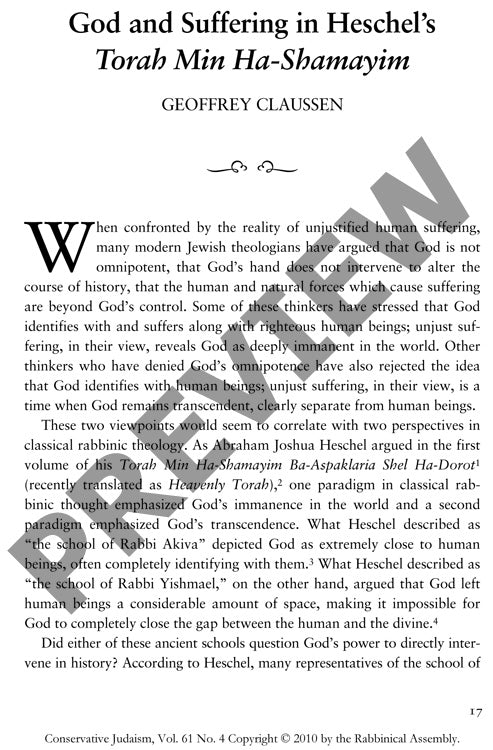God and Suffering in Heschels Torah Min
Couldn't load pickup availability
Abraham Joshua Heschel's influential analysis of rabbinic views on suffering in *Torah Min Ha-Shamayim* reveals significant theological blind spots that have shaped modern Jewish thought. While Heschel identified two primary rabbinic paradigms—Rabbi Akiva's immanentist school and Rabbi Yishmael's transcendentalist school—his binary framework obscures a more complex reality. Close textual analysis demonstrates that each paradigm actually contained both interventionist and non-interventionist perspectives on God's role in human suffering, yielding four distinct theological positions. Heschel's personal commitment to non-interventionist immanentist theology led him to systematically downplay non-interventionist transcendentalist views that depicted God as compassionate yet unable to intervene directly in history. Examination of rabbinic sources cited in *Torah Min Ha-Shamayim*, alongside additional Talmudic passages, reveals that the school of Rabbi Yishmael included significant non-interventionist elements that challenged divine omnipotence while maintaining God's transcendence. These findings illuminate how Heschel's theological preferences caused him to privilege certain rabbinic models over others, thereby obscuring alternative approaches to theodicy that maintain divine transcendence without requiring belief in God's absolute power. This research advances our understanding of both classical rabbinic theology and modern Jewish theological interpretation by revealing the limitations of Heschel's scholarly framework.

More Information
-
Physical Description
-
Publication Information
Published 2010
ISBN
-
Publication Credits
Geoffrey Claussen

